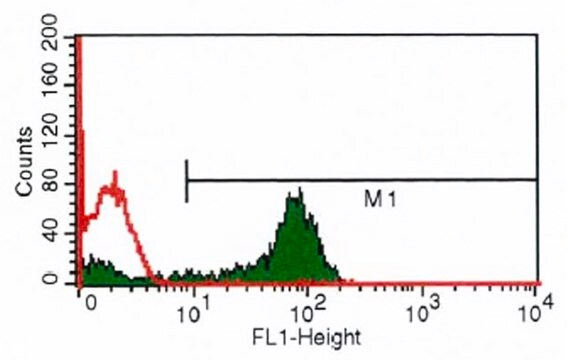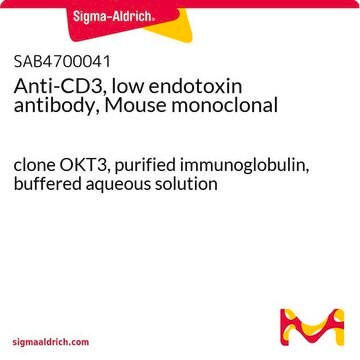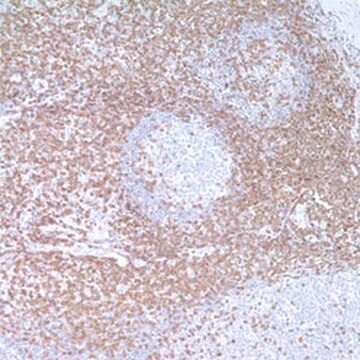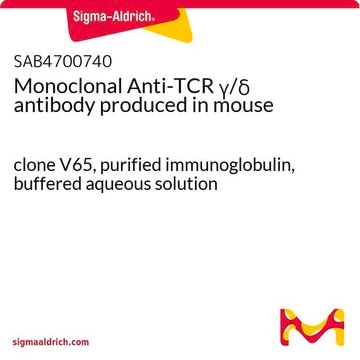C7930
Anti-CD3, T Cell antibody produced in rabbit
whole antiserum
Synonym(s):
Anti-CD3epsilon, Anti-IMD18, Anti-T3E, Anti-TCRE
About This Item
Recommended Products
biological source
rabbit
conjugate
unconjugated
antibody form
whole antiserum
antibody product type
primary antibodies
clone
polyclonal
mol wt
antigen 20 kDa (bovine and swine)
contains
15 mM sodium azide
species reactivity
rat, canine, mouse, human, Psammomys (sand rat), sheep, feline, pig, chicken, bovine
technique(s)
immunohistochemistry (formalin-fixed, paraffin-embedded sections): 1:200 using enzyme pre-digested, formalin-fixed, paraffin-embedded human tonsil sections
western blot: 1:200 using mouse thymus extract
UniProt accession no.
shipped in
dry ice
storage temp.
−20°C
target post-translational modification
unmodified
Gene Information
human ... CD3E(916)
mouse ... Cd3e(12501)
rat ... Cd3e(315609)
General description
Specificity
Immunogen
Application
- immunoblotting
- immunofluorescence staining
- immunohistochemistry
- immunohistochemical analysis
Biochem/physiol Actions
Disclaimer
Not finding the right product?
Try our Product Selector Tool.
Storage Class Code
12 - Non Combustible Liquids
WGK
nwg
Flash Point(F)
Not applicable
Flash Point(C)
Not applicable
Certificates of Analysis (COA)
Search for Certificates of Analysis (COA) by entering the products Lot/Batch Number. Lot and Batch Numbers can be found on a product’s label following the words ‘Lot’ or ‘Batch’.
Already Own This Product?
Find documentation for the products that you have recently purchased in the Document Library.
Customers Also Viewed
Our team of scientists has experience in all areas of research including Life Science, Material Science, Chemical Synthesis, Chromatography, Analytical and many others.
Contact Technical Service










